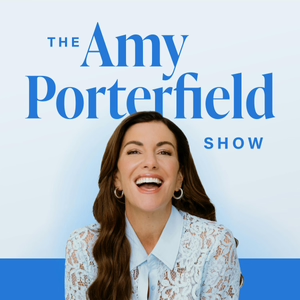
S1/E2 Possibility thinking
11/01/21 • 29 min
In this episode we examine systems change and possibility thinking with a leader in the field. Charlie Leadbeater is a creative systems innovator who works with organisations around the world to address long term problems, such as unacceptable rates of poverty. He says it’s time to reframe social issues to create meaningful solutions that are driven by a more inclusive set of values.
Can we imagine a place for love and creativity in policy innovation? This approach has influenced the Family by Family project run by the Australian Centre for Social Innovation. We meet participant Melissa Hughes who shares her experience of how a relationship with a mentor family helped her move through a tough time and become a more confident and resilient parent.
We’ll also explore the challenges put to the educated and the powerful, including philanthropic organisations, to foster new ways of thinking to influence better public policy and evidence-based programs on the ground.
Visit lifeslottery.com.au for more.
Produced by UTS Impact Studios:
Executive Producer: Olivia Rosenman
Audio Producer: Nicole Curby
Researcher/writer: Jackie May
Theme music and Sound Design: Frank Lopez
Production music: Blue Dot Sessions
Graphic design: Celia Neilson
In this episode we examine systems change and possibility thinking with a leader in the field. Charlie Leadbeater is a creative systems innovator who works with organisations around the world to address long term problems, such as unacceptable rates of poverty. He says it’s time to reframe social issues to create meaningful solutions that are driven by a more inclusive set of values.
Can we imagine a place for love and creativity in policy innovation? This approach has influenced the Family by Family project run by the Australian Centre for Social Innovation. We meet participant Melissa Hughes who shares her experience of how a relationship with a mentor family helped her move through a tough time and become a more confident and resilient parent.
We’ll also explore the challenges put to the educated and the powerful, including philanthropic organisations, to foster new ways of thinking to influence better public policy and evidence-based programs on the ground.
Visit lifeslottery.com.au for more.
Produced by UTS Impact Studios:
Executive Producer: Olivia Rosenman
Audio Producer: Nicole Curby
Researcher/writer: Jackie May
Theme music and Sound Design: Frank Lopez
Production music: Blue Dot Sessions
Graphic design: Celia Neilson
Previous Episode

S1/E1 On merit
Australians believe our country is the land of the fair go. A meritocracy where if you work hard you can be successful, no matter what circumstances you were born into. But how true is this? Is intelligence and hard work really enough to break out of a cycle of disadvantage?
This episode interrogates the idea of meritocracy and how it was established in the Australian context with Alison Pennington from the Centre for Future Work. We also hear from the author and Saturday Paper social affairs journalist Rick Morton. He questions the reality of merit and social mobility at a time of widening wealth inequality and what that says about our commitment to provide opportunities for all.
Visit lifeslottery.com.au for more.
Produced by UTS Impact Studios:
Executive Producer: Olivia Rosenman
Audio Producer: Nicole Curby
Researcher/writer: Jackie May
Theme music and Sound Design: Frank Lopez
Production music: Blue Dot Sessions
Graphic design: Celia Neilson
Next Episode

S1/E3 Parents in prison
Most people in jail have experienced disadvantage at some point in their lives, and it’s a legacy that often passes from parent to child. This episode examines current Australian research into the experience of mothers in the criminal justice system with Professor Susan Dennison from Griffith University. Her research project, Transforming corrections to transform lives, explores how having a parent in prison shapes the development and life outcomes of their children. A better understanding of parental identity in prison could help to improve the experience of those parents, and promote their rehabilitation.
We’ll also meet Tegan in this episode. Tegan is serving a sentence at the Darwin Correctional Centre, and her mum is there too. We’ll hear what it’s like for Tegan trying to parent three young children from inside prison.
Could transforming policies and systems for parents in prison reduce the intergenerational transmission of offending and disadvantage? What kind of measures would ensure prisoners maintain strong relationships with their children and why are these investments worth it? Might this be a way to ensure a prison sentence becomes an offramp to break the cycle of disadvantage?
Tegan’s story is excerpted from Birds’ Eye View, the first podcast made by women in the Darwin Correctional Centre. For more information, and to listen to the podcast in its entirety, visit birdseyeviewpodcast.net
Visit lifeslottery.com.au for more.
Produced by UTS Impact Studios:
Executive Producer: Olivia Rosenman
Audio Producer: Nicole Curby
Researcher/writer: Jackie May
Theme music and Sound Design: Frank Lopez
Production music: Blue Dot Sessions
Graphic design: Celia Neilson
If you like this episode you’ll love
Episode Comments
Generate a badge
Get a badge for your website that links back to this episode
<a href="https://goodpods.com/podcasts/lifes-lottery-218345/s1e2-possibility-thinking-24725733"> <img src="https://storage.googleapis.com/goodpods-images-bucket/badges/generic-badge-1.svg" alt="listen to s1/e2 possibility thinking on goodpods" style="width: 225px" /> </a>
Copy




